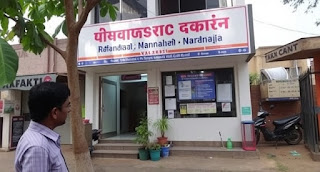Unauthorised Diagnostic Centres Proliferate in Warangal; Fake Lab Reports Spark Concern
The city of Warangal, known for its rich history and rapid urban development, is facing a burgeoning crisis in the form of unauthorised diagnostic centres. The unchecked rise of these unregulated establishments has led to growing concerns among healthcare professionals and residents alike, particularly as fake lab reports begin to surface, endangering public health.
A Growing Menace
Recent inspections by health authorities have revealed the alarming spread of unauthorised diagnostic centres across Warangal. Many of these centres operate without the necessary certifications, proper infrastructure, or qualified staff. The lack of oversight has allowed them to thrive, catering to unsuspecting patients seeking affordable and accessible healthcare.
A senior official from the Telangana Health Department stated, “We have identified several diagnostic centres running without proper licenses. These establishments often lack trained technicians and standard equipment, resulting in inaccurate and sometimes completely fabricated reports.”
Fake Reports: A Ticking Time Bomb
One of the most distressing consequences of this proliferation is the emergence of fake lab reports. Several patients have reported receiving incorrect diagnoses, leading to unnecessary treatments or delays in addressing actual health conditions. For instance, a resident, Lakshmi Reddy, shared her ordeal: “I was told I had diabetes based on a report from a nearby lab. When I sought a second opinion at a reputed hospital, my sugar levels were normal. It was a harrowing experience.”
Such cases underscore the gravity of the issue. Misdiagnoses can lead to severe complications, including the progression of untreated diseases or the onset of new health problems due to inappropriate medication or treatment.
Why Are Unauthorised Centres Thriving?
Several factors contribute to the unchecked growth of unauthorised diagnostic centres in Warangal:
Affordability: These centres offer services at lower prices than licensed laboratories, making them attractive to economically disadvantaged individuals.
Accessibility: With their widespread presence, they cater to people in areas where authorised diagnostic centres are sparse.
Lack of Awareness: Many residents are unaware of the risks associated with unauthorised labs and often choose convenience over quality.
Inadequate Monitoring: Limited enforcement of regulations and insufficient periodic checks have allowed these centres to operate with impunity.
Steps Taken by Authorities
In response to the crisis, the Telangana Health Department has initiated measures to crack down on unauthorised diagnostic centres. Recent raids have led to the closure of several such establishments, and authorities are working to identify others operating illegally.
District Medical and Health Officer (DMHO) Dr. Rajeshwar Reddy stated, “We are conducting inspections and issuing notices to unauthorised centres. Public awareness campaigns are also being planned to educate residents about the importance of choosing licensed diagnostic facilities.”
Moreover, the state government is considering the introduction of stricter regulations to ensure compliance. Proposals include mandatory registration of all diagnostic centres, periodic audits, and severe penalties for violations.
The Role of Technology
Technology could play a significant role in addressing this issue. The integration of a centralised database for diagnostic centres could help streamline monitoring efforts. Such a system would enable authorities to track registered labs, their certifications, and compliance status in real-time. It would also allow patients to verify the authenticity of diagnostic centres before availing of their services.
Public Awareness: A Crucial Element
Addressing this crisis requires not only government action but also active participation from the public. Residents must be vigilant and opt for accredited diagnostic centres to ensure the accuracy and reliability of test results. Public awareness campaigns, supported by local media and community organisations, can help disseminate information about the risks associated with unauthorised labs.
Additionally, healthcare professionals have a crucial role to play in guiding patients toward reputable diagnostic services. By fostering trust and open communication, they can help mitigate the impact of fake reports on public health.
A Call for Urgent Action
The proliferation of unauthorised diagnostic centres in Warangal is a stark reminder of the need for stringent healthcare regulations and effective enforcement. With fake lab reports putting lives at risk, urgent action is imperative to safeguard public health and restore trust in the healthcare system.
Authorities, healthcare providers, and residents must collaborate to address this issue comprehensively. By prioritising quality and accountability, Warangal can overcome this challenge and ensure a healthier future for its citizens.


.jpg)











